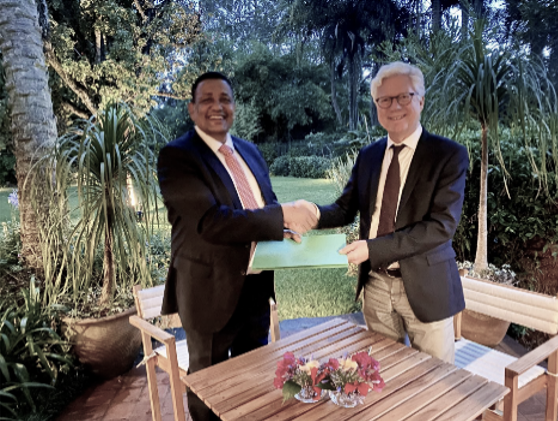
Digital transformation is fundamental to building efficient, transparent, and accountable government organizations. It is thereby a key driver to boost GDP, while bridging divides and empowering millions to shape a more equal and prosperous future in the African region.
In November 2024, the United Nations Development Programme and cBrain partnered to accelerate Africa’s digital transformation. By aligning proven Danish government experiences with the UNDP Digital Offer for Africa strategy, the partnership enables governments across the African region to implement scalable and efficient digital public services—helping to drive inclusion, economic growth, and resilience. This transformation to paperless eGovernment is supported by the deployment of the cBrain F2® platform and the reuse of process libraries.


Paperless eGovernment is a key driver of growing GDP. Reports from the World Bank, OECD and United Nations have found that digitizing government operations leads to enhanced public sector efficiency and transparency. By eliminating paper-based workflows, reducing administrative burdens, and improving service delivery, paperless eGovernment can build sustainable and accountable institutions while unlocking economic potential across Africa.
cBrain has adapted the Danish ministerial F2 setup for a ministry in an African country, leading to an African paperless ministry solution. This included developing a five-step training model, adapting Danish government experiences for African leaders and civil servants.
The African paperless ministry package offers African governments a fast track to paperless eGovernment. The package consists of five components: pre-configured software, workflow descriptions, training modules, hosting strategy, and a project delivery plan.
Due to the nature of government sovereignty, regional transformation into paperless eGovernment must be implemented at the country level, in close working relationships between country government and the UNDP country offices.
The UNDP Digital Offer for Africa strategy is based on a Theory of Change with four steps leading to digital transformation. The UNDP Resilience Hub for Africa has a strong focus on implementation and fast delivery of digital solutions.

By reusing Danish government experiences, a new combined model has been developed. The theory of change steps provides the framework for impact assessment, while the Danish government platform and process libraries serve as a foundation for accelerating the UNDP Digital Offer for Africa strategy.
The digital process libraries function as a repository of scalable digital solutions. Each business process in the digital process libraries is evaluated and verified against these four key strategic pillars:

This approach ensures faster and more effective implementation, allowing governments to continuously refine and scale their digital solutions.
A key component of this transformation is the Digital Driver’s License, a structured training model that equips government leaders and employees with the skills to operate in a modern, digital-first environment. Powered by cBrain’s commercial off-the-shelf (COTS) platform, cBrain F2, this structured capacity-building approach enables governments to digitize operations in just weeks through a 5-step learning process:

By integrating structured training with best practices in digital governance, governments can seamlessly transition to e-government.


